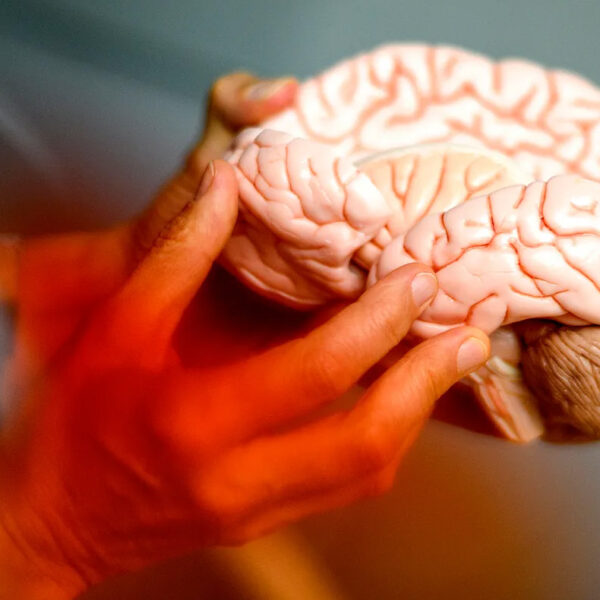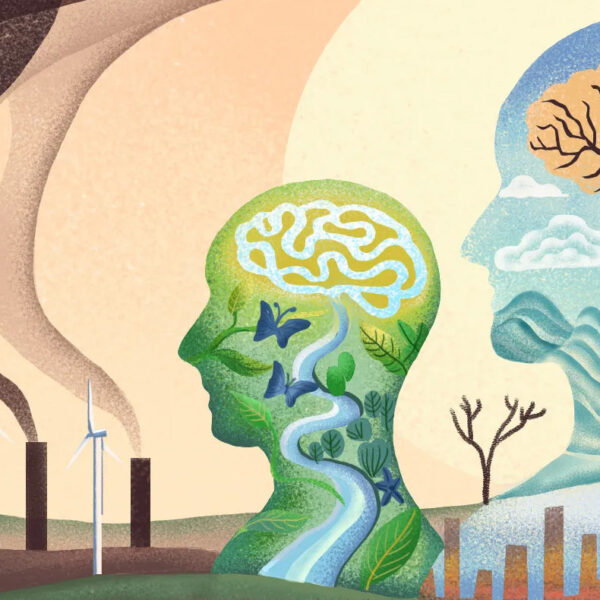
Mental Health Research Consortium@Northeastern
From Fundamental Discoveries to Therapeutic Interventions:
Promoting Mental Health and Well Being Across Society
One in four people is affected by a mental health disorder, ranging from anxiety, depression, and attention-deficit/hyperactivity disorder (ADHD), to obsessive-compulsive disorder (OCD), schizophrenia, and bipolar disorder. The COVID pandemic has revealed deep and systemic deficiencies in treatment options and community resources for those struggling with mental health disorders.
Through this cross-college, interdisciplinary initiative, we are accelerating progress in uncovering the molecular underpinnings of mental health conditions and deepening our understand of the intricacies of the brain. We are developing new effective tools to address the multi-factorial needs of patients and their families.
We are connecting mental health researchers across scales, from the biochemist studying the lipids that constitute the neural membrane, to the neurophysiologist specializing in brain imaging, to the engineer inventing bio-feedback and data collection wearables, to the clinician designing effective therapies and the community activist and policymaker enabling these solutions to reach communities in need.
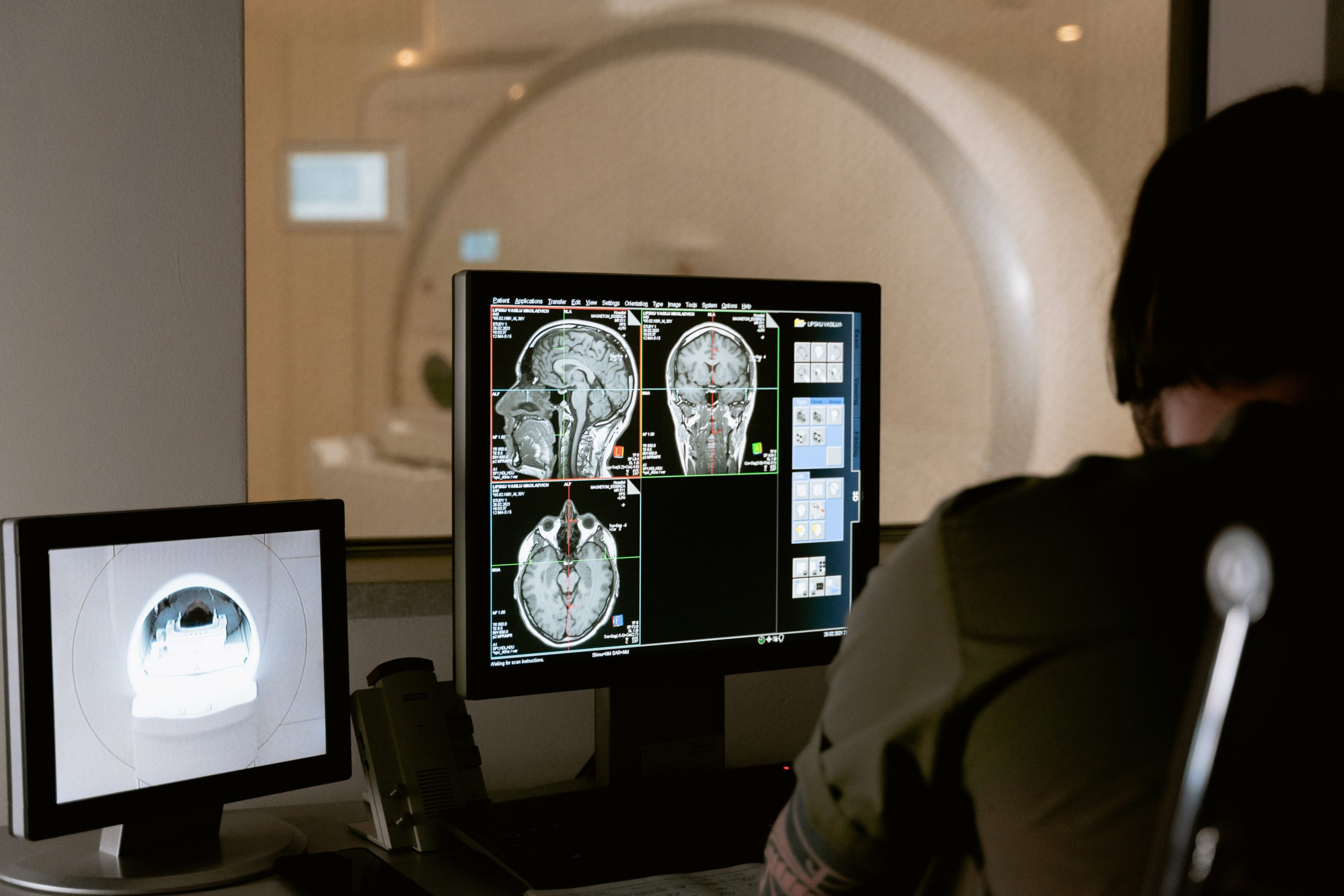
Hear from our mental health research experts
Explore our mental health research
Our mental health research spans the Northeastern Network. Understanding and improving mental health is a multi-scale, multi-partner endeavor. By engaging with interdisciplinary research at all levels – across departments, colleges, institutions, cities, and regions – we are tackling some of the most important societal challenges.
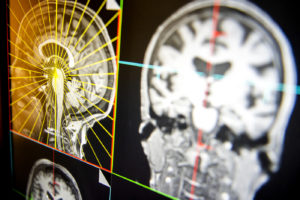
The Center for Cognitive and Brain Health (CBH) investigates the effects of lifestyle choices and behaviors (e.g., physical activity, artistic engagement, dietary choices) on brain activity and structure, cognitive and affective performance, and physiological indices of health (e.g., fitness, adiposity, autonomic markers, sleep, stress). CBH brings to bear multiple perspectives and methodologies (including interventions, state of the art multimodal neuroimaging, computational modeling, and sophisticated behavioral paradigms) to explicate mechanisms of brain health and disease to improve the lives of individuals across the lifespan.
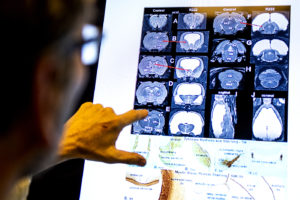
The Center for Translational NeuroImaging (CTNI) is a full-scale behavioral neuroscience center that seeks to improve human mental and physical health through advanced experimental approaches that bridge the growing gap between basic neurobiology and clinical presentation. Over the years the center has pioneered the ability to perform functional imaging experiments in awake, conscious animals, and contributed to the publication of over 300 papers on functional neuroimaging in awake animals, from both inside and outside the.

Disparities in health and mental health arise and persist as the result of complex individual, societal, and global factors. The Institute for Health, Equity, and Social Justice (IHESJR) brings together faculty and students from across Northeastern University, along with external research partners, to tackle these complex challenges. Their teams draw upon a wide range of research methods and interventions, but share a common commitment to promoting health equity and social justice through high-impact, community engaged research.

The Roux Institute’s Observational Health Data Sciences and Informatics Center—or OHDSI, pronounced “odyssey”—advances healthcare by fostering reproducible research through open science. Their collaborators maintain a network of standardized clinical data covering nearly 10% of the world’s population. They support research collaborations among academia, industries, and governments across disciplines and around the globe. And as part of Northeastern University, they provide education and training programs for learners and institutional partners.

Based in the heart of London, New College of the Humanities (NCH London) has developed a reputation for delivering an excellent university experience. NCH London offers a vibrant, collegiate community delivering broad and academically rigorous degree programmes, designed to equip graduates with the combination of skills and knowledge that are increasingly desired by organisations, employers and society. The College is continuing to expand its portfolio by developing interdisciplinary degree programmes, which combine its emphasis on the humanities with the exploration of complementary scientific subjects.
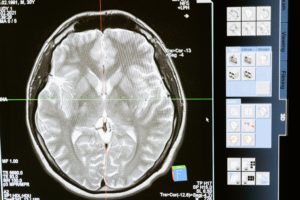
Autism spectrum disorder (ASD), encompasses to a range of conditions characterized by challenges with social skills, repetitive behaviors, speech and nonverbal communication. Researchers at Northeastern are studying ASD from a diverse array of perspectives, from behavior analysis, to neuroimaging, to the development of wearable technology that allows for revolutionary and innovative data collection and analysis.
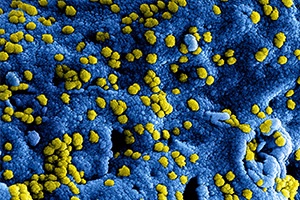
A growing body of research has established the link between metabolism and mental health, connecting facets such as the gut microbiome to opioid addiction, and nutrition to emotion regulation. Northeastern faculty approach the metabolic-cognitive association via methods ranging from chemical analysis to observational studies on mice and zebrafish, paving the way for translational and impactful discoveries.

There are close to 36 million Americans age 65 and older, a number which is projected to double over the next 15 years. Cross-disciplinary interactions across Northeastern have facilitated a number of exciting new research directives, including discovery of behavioral biomarkers that reflect changes in cognitive and/or physical functionality with age, computational modeling of changes in cognitive and physical functions across lifespan, and development of approaches to intervention that mitigate the progression of actual or potential decline in cognitive and/or physical function due to advancing age.
Available Resources
If you, or someone you are concerned about, is experiencing a Mental Health related emergency on campus, please call the Campus police at x3333 or 911 if you are off-campus. You can reach the Suicide & Crisis Lifeline by dialing 988.
The links below will guide you to Mental Health Services available at Northeastern. University Health and Counseling Services offers support, information, and response to mental health and medical concerns for students on the Boston campus. 24/7 Mental Health Support is available through Find@Northeastern.
(Photo of Cooper, Northeastern’s community resource dog)

Services – 24/7 Mental Health Support including phone and video counseling sessions, self-guided support, and personal follow ups.
+1.877.233.9477 (U.S.)
+1.781.457.7777 (Intl.)
Including:
- Find@Northeastern
- What to expect
- Emergencies
- Mental Health Visits with UHCS
- Psychopharmacology Services
- Support groups
Services – The We Care program is a support system for students during times of difficulty or challenge.
104 Ell Hall
617.373.4384
[email protected]
617.373.7591
Mindfulness
Featuring:
Aaron B. Daniels
Associate Teaching Professor
College of Science
Chieh Li
Associate Professor
Bouvé College of Health Sciences

Research Exchange and Conversations on Autism
Featuring:
Laura Dudley
Associate Clinical Professor
Bouvé College of Health Sciences
Matthew Goodwin
Associate Professor
Bouvé College of Health Sciences, Khoury College of Computer Sciences
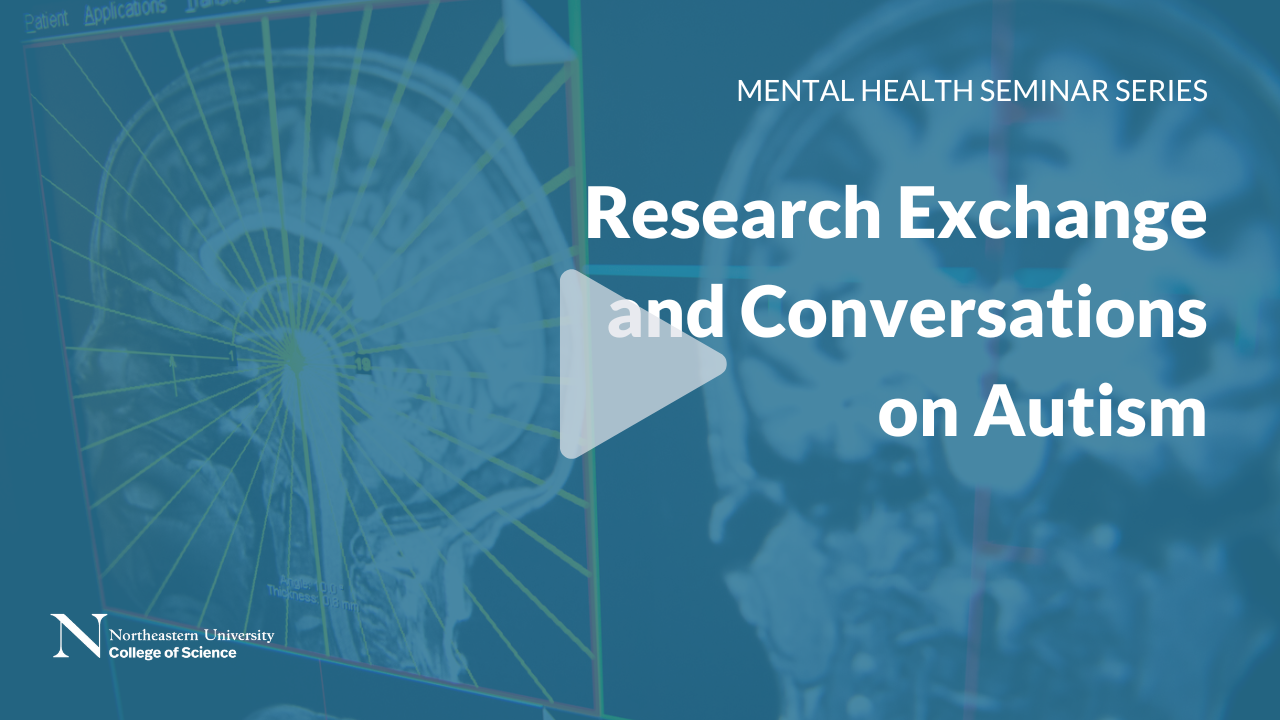
Research Exchange and Conversations on Metabolism
Featuring:
Hazel Sive
Dean, College of Science
Craig Ferris
Professor
College of Science, Bouvé College of Health Sciences
Susan Whitfield-Gabrieli
Professor
College of Science
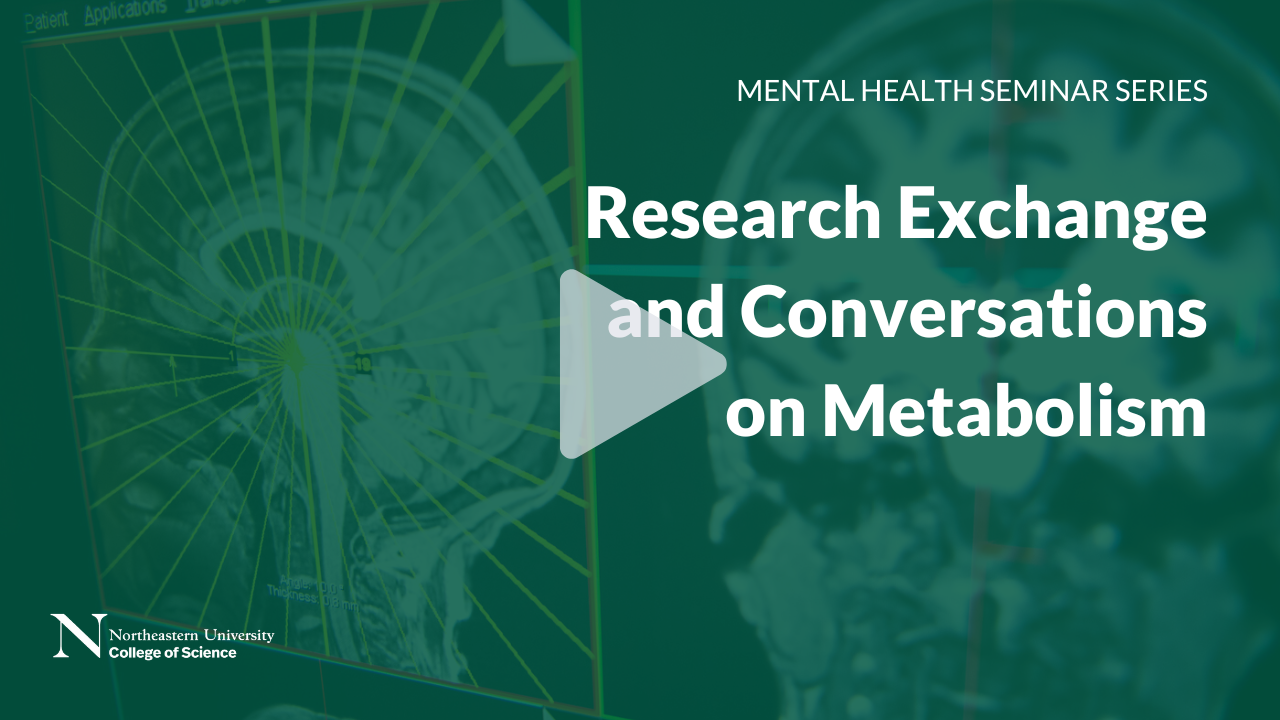
Research Exchange and Conversations on Trauma
Featuring:
Rebecca Shansky
Associate Professor
College of Science
Don Robinaugh
Assistant Professor
College of Arts, Media and Design
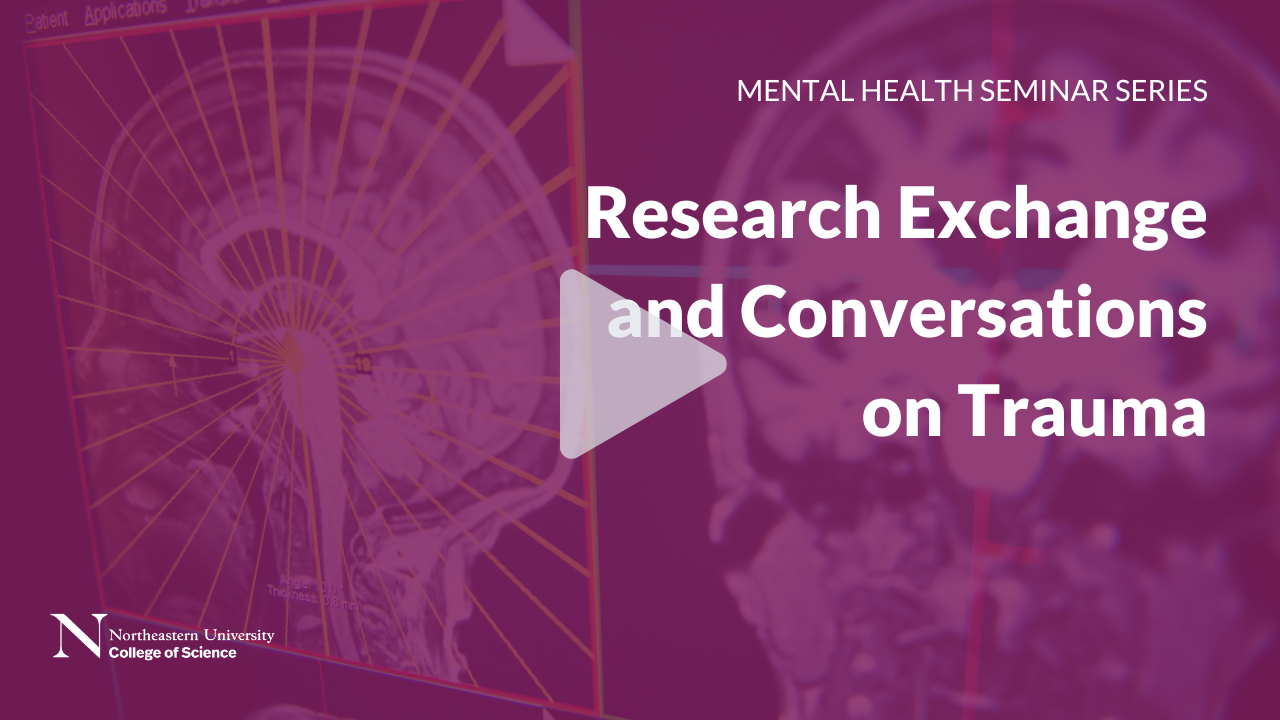
Research Exchange and Conversations on Video Games
Featuring:
Leanne Chukoskie
Associate Professor
Bouvé College of Health Sciences, College of Arts, Media and Design
Casper Harteveld
Associate Professor
College of Arts, Media and Design
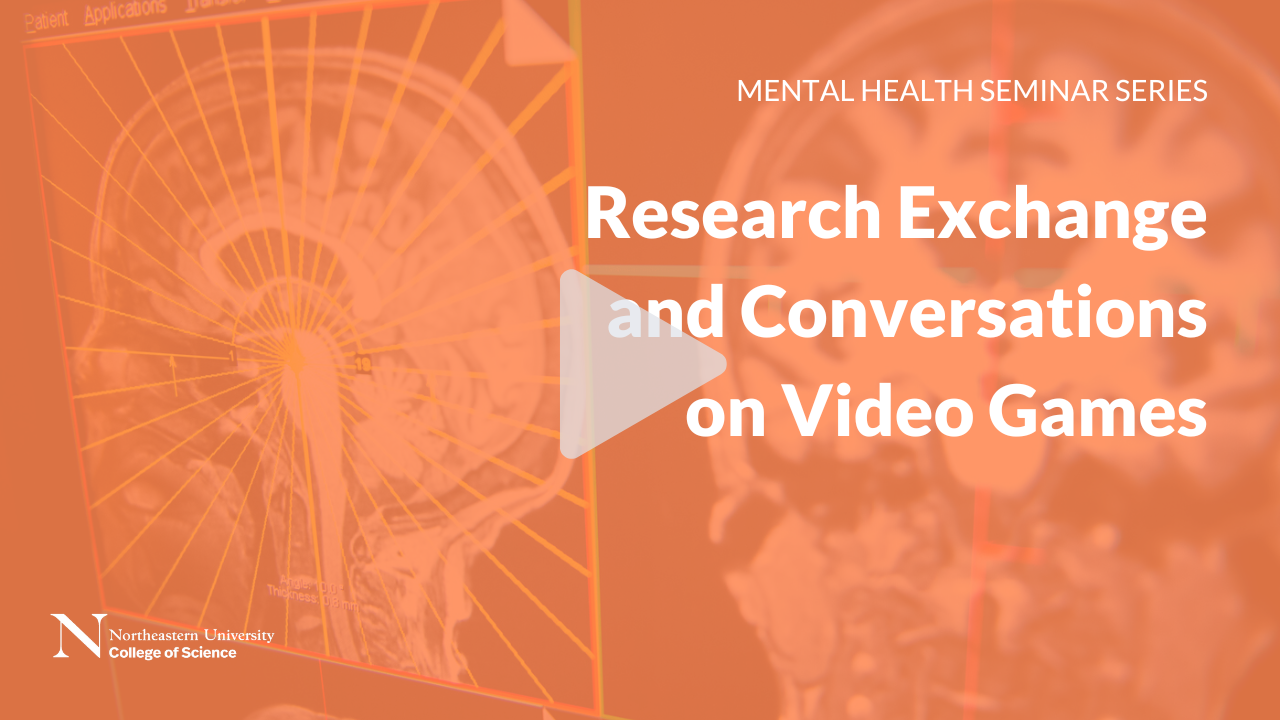
Mental Health Research in the News
